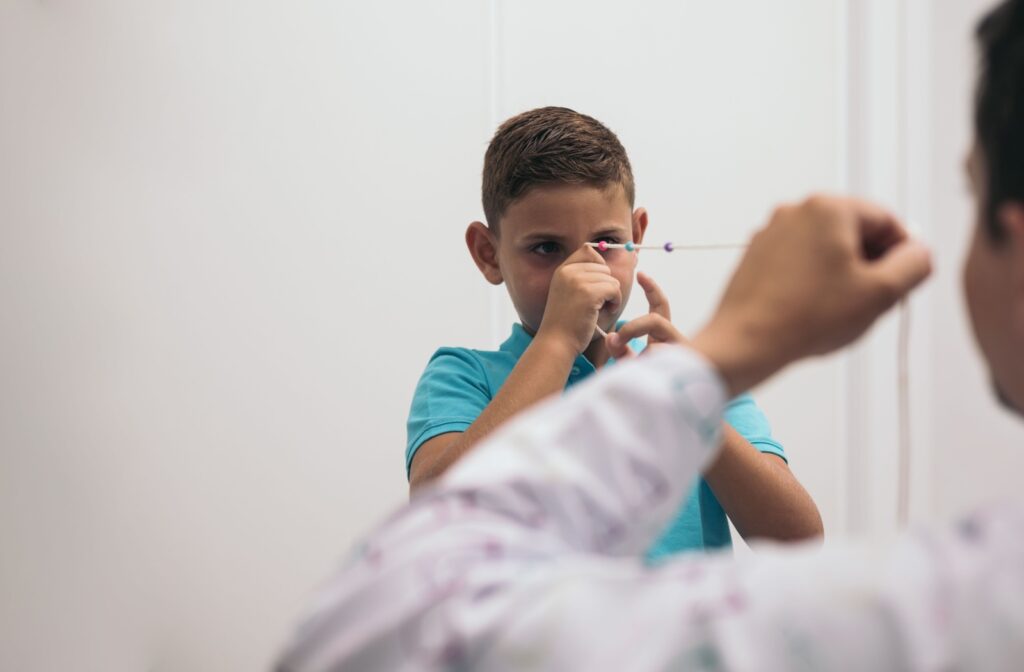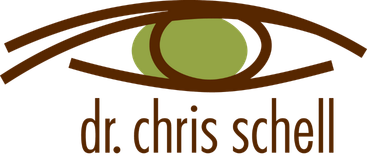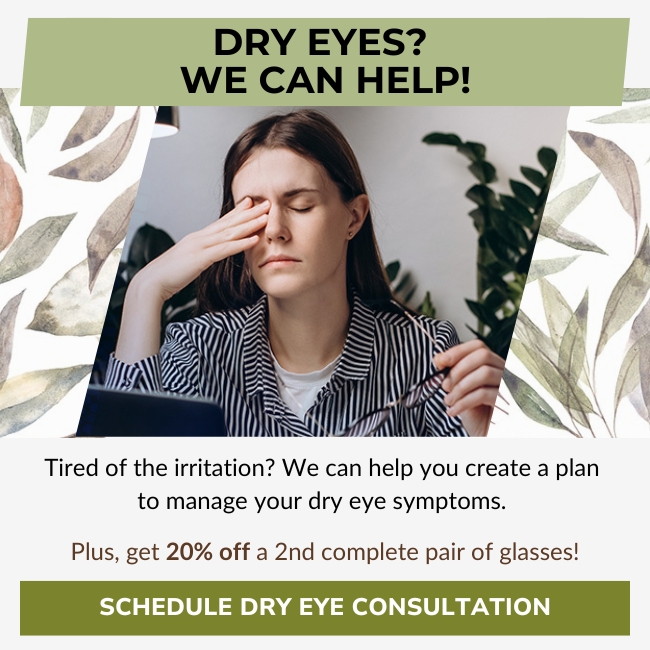In Ontario’s increasingly complex medical landscape, it can feel difficult to get holistic health advice outside of a prescription or surgery consult while a doctor rushes you out of the room, mispronouncing your name on the way. When it comes to vision challenges, vision therapy is an option you may not even know exists.
As a personalized physical therapy for your eyes, patients undertaking vision therapy can see results in as little as a few weeks to 6 months. Working with a team dedicated to comprehensive care for every patient’s long-term vision health can help make this timeline pass in the blink of an eye.
What Does Vision Therapy Look Like?
Your vision therapy program is tailored to your or your child’s exact eye needs. It typically involves using therapeutic lenses, specialized equipment, and computer programs in a weekly 45-60-minute one-on-one session with a vision therapist. That means it’s a noninvasive, doctor-supervised program that helps strengthen the connection between your eyes and brain for clearer and more comfortable vision.
Daily practice exercises are also highly recommended to be completed at home between sessions. Therapy solutions like AmblyoPlay and other exercises recommended by your vision therapist can make this daily practice easier and more fun than other daily hygienic activities (like the ever-dreaded flossing).
How Do I Know My Vision Therapy Is Working?
A wide range of benefits can be noticed as vision therapy progresses: improvement in your child’s academic performance, professional productivity, or even safer driving practices.
A comprehensive eye exam for adults or children as young as 6 months old can give you insight into your vision beyond the typical 20/20 standard. After all, 20/20 vision is just how sharp or clear the images you can see 20 feet away are. It doesn’t consider other visual skills like:
- Binocular vision (used to judge distance and depth)
- Peripheral vision (used to monitor your surrounding environment)
- Spatial relationships (used for hand-eye coordination, balance, and fine motor skills)
- Visual memory (used to recall what the eye has seen)
Building these skills with vision therapy can result in less eye strain, fewer headaches, higher self-esteem and confidence, and improved visual function. Your unique vision function goals will help you and your visual therapist monitor your progress.
Is Vision Therapy Right for Me or My Child?
While vision therapy is commonly used to help with developmental problems, neuro-optometric rehabilitation, and sports vision training, Foveal Vision Training encompasses a broad spectrum of vision therapy, including real-world vision, functional vision, vision skills, and structural vision. This range is particularly helpful for working with children who are often unable to articulate the exact vision problems they may be experiencing.
As a parent, you may be interested in learning more about vision therapy if you notice that your child:
- Interchanges numbers and letters
- Mixes up similar words (such as ‘was’ and ‘saw’)
- Rubs their eyes or closes one eye while reading
- Struggles when reading, skipping words and using their fingers to track their place
- Avoids activities that require focusing on objects within arm’s reach
- Has poor hand-eye coordination

Furthermore, vision therapy can help children (and adults) with:
- ADD/ADHD
- Amblyopia (lazy eye)
- Brain injuries
- Convergence insufficiency (CI)
- Learning problems
- Reading comprehension
- Sports
- Strabismus (eye turn)
- Visual dysfunctions such as accommodative dysfunction, vergence dysfunction, form perception dysfunction (letter and word reversals), and visual processing dysfunction (peripheral awareness and form perception)
How Long Do I Undertake Vision Therapy?
How long you participate in vision therapy depends on your vision goals and the plan you create with your visual therapist, recognizing that more complicated problems may result in more therapy. While results can be seen in a few weeks, and some eye tracking and focusing problems can be eliminated in 3-6 months, many visual processing problems require more than 6 months’ worth of therapy.
Vision therapy can be a very helpful aspect of holistic eye care, but it is not a replacement for eyeglasses or surgery when needed (though it can be used in conjunction with both). Unfortunately, it is also not covered by OHIP. While payment plans are available to help you access the vision care you need, it is a consideration.
Improvement From Vision Therapy
Our vision greatly impacts our ability to partake in work, school, sports, and play. Vision therapy can help you see improvements in your or your child’s vision problems in as little as a few weeks.
- Functional vision: You may see improvements in eye-hand coordination, visual processing, and spatial and depth perception.
- Vision skills: You may begin to see improvements with fixations, saccades, object tracking, and focus.
- Structural vision: You may see improvements in eye health, clarity, and visual pathways.
Incorporate Vision Therapy Into Your Visual Health
Dr. Chris Schell can work with you to develop a personalized therapy treatment plan for you or your child to help improve visual experience and long-term vision health that considers you and your family’s needs. Schedule an eye exam today to explore how to incorporate vision therapy into your visual healthcare.



